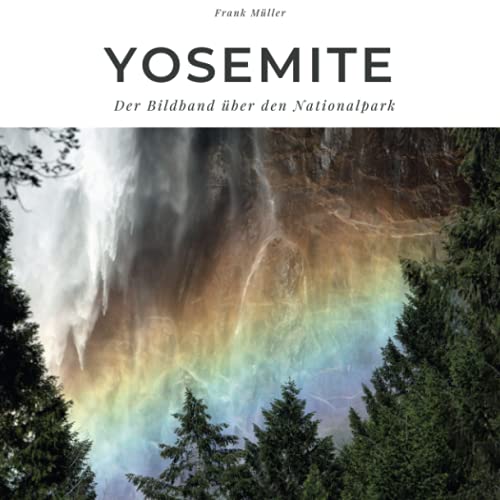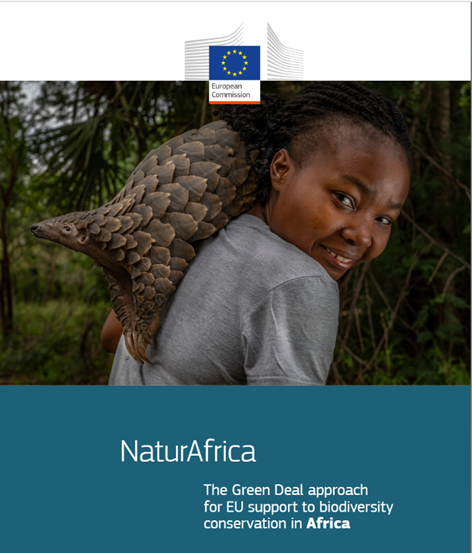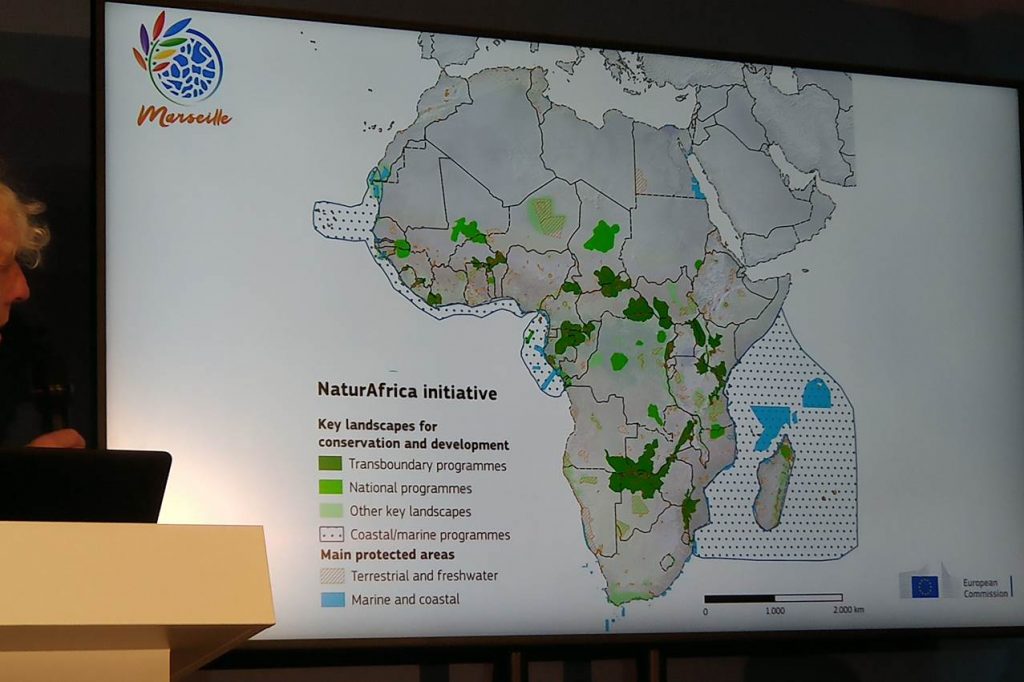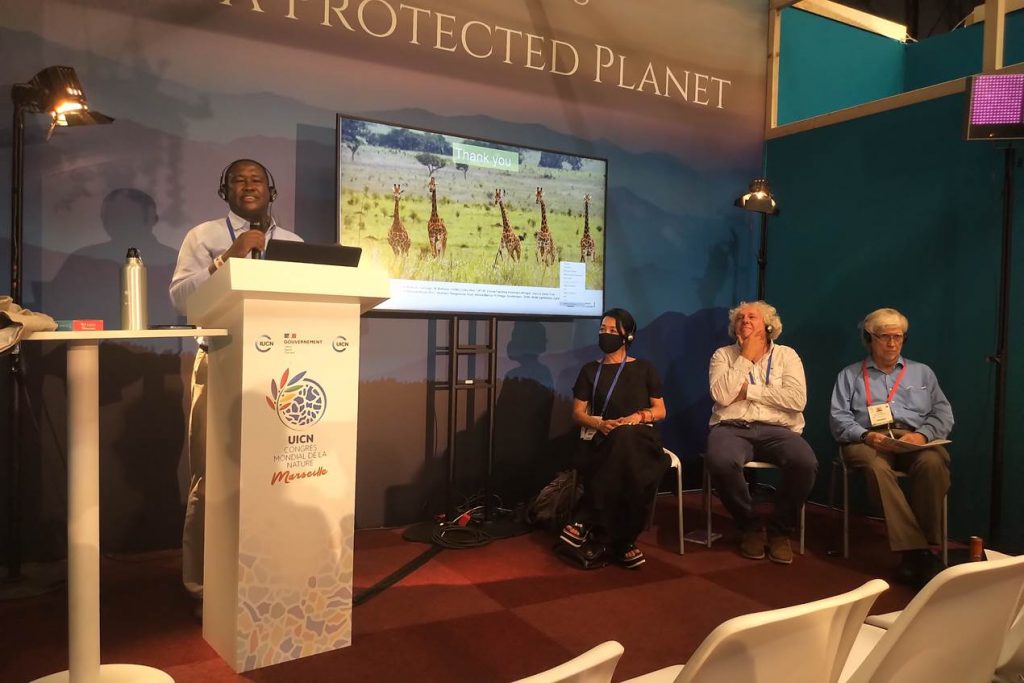
WHAT DO JOHN MUIR’S WRITINGS AND THOUGHTS MEAN TODAY?
John Muir is widely acknowledged to be the ‘father’ of conservation thinking, indeed considered by many to be a conservation hero whose standing straddles two centuries. Whether or not that is justified is a different issue, but the pinnacle of this adulation is probably the reference to him as ‘Father of the National Parks’. A historical examination of the global network of protected areas shows that the original US National parks like Yellowstone were the inspiration behind the establishment of similar structures all over the world. From a personal perspective, there are a number of different things which inspired my childhood fascination with wildlife and wild places and a major one was the wonderful hardcover book “The American Wilderness” by John Muir, a somewhat unlikely read for the typical African child, but part of my experience spending part of my childhood in the United States. Others were the romanticized and shallow portrayals of African wildlife in films like “Born Free” and “Serengeti Shall Not Die” by Joy Adamson and Bernhard Grzimek respectively, which were made in the 1960s, but really became staples in the 1970s. One theme that endured the test of time from the turn of the 20th century into the beginning of the 21st century has been the dominance of white people in the global conservation narrative.
When we read the works of John Muir today, what stands out to critical observation is his gift of expression and passion for the wilderness he talks about. However, therein also lies the deep malaise that grew from charismatic men like him, and their gift for imparting their belief. Conservation practice around the world today is based loosely on the fortress conservation model developed in the 19th Century North America. Reference to history books reveal to us portraits of a society that had little or no place for any human perspectives that weren’t Christian, Male, and white. These dominant perspectives were enforced by continuous violence, perpetrated on Native American nations, women, black slaves brought from Africa, and Hispanic people from further south. One of Muir’s more famous works, ‘Our National Parks’ was published in 1901 and this caught the attention of President Theodore Roosevelt. They corresponded regularly and in 1903, Roosevelt visited Muir and they undertook a camping trip in Yosemite. To this day it is still considered the “most significant camping trip” in history. There, together, beneath the trees, they laid the foundation of Roosevelt’s expansive conservation programs. This was the beginning of the global protected area network, driven largely by hubris and the need for self-actualization through purported protection of ‘nature’. This convergence of ideas between these two famous men also conferred acceptability to the notion of ‘pristine wilderness’ devoid of human presence. The seeds of racism in conservation practice were also sown during this time by Muir, who regarded the native Americans as ‘unclean’ and something of a stain on the pristine wilderness that was Yosemite
The perceptions of European colonists around the world determined what part of biodiversity was worth killing and what was worth saving, resulting in a strange situation where they simultaneously occupied the place of killers, and that of ‘saviours’. Even today, where the intrinsic values of biodiversity seem to be indelibly stained by the needs of tourism, the desires and aspirations of white people continue to influence what in nature is to be eliminated as vermin, what is to be hunted for prestige as trophies and what is precious enough to be protected through the use of force and violence. In some cases, species like the African elephant are hunted by white hunters for prestige while being protected by white saviours from black ‘poachers’. Indeed, conservation practice is one of the few facets of human endeavour where duplicity is accepted as the norm, with endangered wildlife protected with military might, while those who are wealthy enough gladly pay for licenses can kill them for fun. We have Muir’s contemporaries like Teddy Roosevelt who were extraordinarily proficient killers of wildlife celebrated as pioneers of conservation. To fully understand the true import of John Muir’s story and legacy, conservation scholars ought to delve into American history to understand the context within which he was living and marveling about this ‘beautiful wilderness’ within which he found himself. Firstly was the creation of Yellowstone National Park in March 1872. This park is widely acknowledged to be the foundation upon which the development of protected areas as a conservation tool grew into the widely held paradigm that we see today. We know very well what Yellowstone is in the history of America as written by the European colonists, but what is Yellowstone on the ground? A two million acre expanse of land from which the ancestors of the Kiowa and Crow Nations were excluded in order to provide a recreation area for the settler colonists. Conservation was and still is an integral cog in the wheel that is colonialism, because it ‘erases’ indigenous people from landscape and lexicon. Even today, the history of Yellowstone as detailed in the US National Parks’ service website does not have any account of the Native Americans’ role in the history of the park. The history of Yellowstone National Park is therefore resolutely ‘white’. The efficacy of terrestrial wildlife conservation is widely (and erroneously) stated by science to be proportional to the geographical size of the ‘protected area’. Conservation science knows, but never acknowledges that the geographical size of a protected area is also directly proportional to the degree of violence required to establish and maintain it. This thinking is also an inadvertent admission that present day conservation science is based on settler colonialism; primarily the notion that wildlife cannot sustainably share landscapes with humans. The sharing of habitats, landscapes and resources with wildlife is an ancient and present reality of indigenous populations all over the world. It is a widely accepted fact that human populations, consumption patterns, and carbon footprints have changed irreversibly over the centuries. However, humans are a unique species in that we are able to change the carrying capacity of their habitats through behaviour. When we examine this capacity for behavior change through the prism of natural resource use, it is conservation practice in it’s purest form, the very essence of civilization. From their own historical accounts, the settler society in North America was still very primitive and violent society in the 18th and 19th centuries with the gun becoming an essential part of everyday life for people everywhere, in farms, in the wild, and even in urban settings. The Hobbesian nature of North American settler society of the period gave rise to the second amendment to the US constitution giving every citizen the right to bear arms. This was a self-justifying law, because the right to bear arms, in itself gave rise to the overarching ‘self-defence’ justification for bearing arms. This is the world in which John Muir distinguished himself through his appreciation of wilderness and natural spaces. Through his appreciation for wild spaces and his gift for writing, he managed to bring nature ‘home’ for the white settler population, gathering a vast following in the process. The amount of interest in nature that Muir managed to garner was also a reflection of the entitlement to it that was felt by the European settler population. The settler population’s admiration for nature made no reference to the Native American nations that they found living with, and using these resources. The universal admiration for National Parks also reveals ignorance or tacit acceptance of the fact that protected areas are almost universally created through acts of violence and disenfranchisement. The peace and tranquility that protected areas represent, is actually a result of areas being ‘cleansed’ of the indigenous people that used them, an act that in itself reduces the owners of resources to the level of a nuisance that needs to be removed, or otherwise dealt with. Racism is very difficult to deny or escape in conservation literature over the generations and Muir wasn’t immune to this difficulty. His writings revealed a grudging admiration for the ways in which the native Americans lived off the land on naturally available resources while leaving a very light footprint on the landscape. Muir’s own limitations in this regard were brought into sharp relief by his inability to find sufficient food during his forays into the wilds of Yosemite, the main limitation that curtailed the amount of time he could spend out in the wild. He was conflicted in the manner in which he regarded nature as clean and pristine, while regarding the natives who blended so well into it as ‘unclean’. Despite being a typically detailed and expressive writer, Muir’s work studiously avoids mentioning any positive interactions with, or assistance from the Native Americans, although he does describe interactions and conversations with Chinese immigrants. This starkly illustrates conservation’s greatest prejudice- the disregard for indigenous peoples. It does not stand to reason that Muir could have spent so much time exploring, sketching, painting and describing Yosemite without regularly encountering its original residents. This was a deliberate effort to erase them from the Yosemite narrative and it is a sad testament to the culture of conservation that this erasure was accepted without question for over a century. Once we understand the attitudes of John Muir an and European settler colonialism, the pall of racism that stains his writings becomes more visible, for instance in the way he refers to the Natives’ knowledge of their environment as ‘instinctive behaviour’, a description commonly used in zoology to describe the behavior of various wildlife species. In addition, there is the conflicted manner in which one who considers himself a naturalist grudgingly admires indigenous knowledge, while stating that it is beyond the remit of what he describes as “civilized whites”. Another vital lesson that contemporary conservation scholars should draw from Muir’s descriptions of his experiences is the nexus between western Christianity and conservation’s attendant prejudices. Muir’s grew up in a staunch Christian family and the spiritual tone is very ‘audible’ in his writing, particularly when describing beautiful features and landscapes. More tellingly, the repeated references to the Native Americans as ‘unclean’. He expressly refers to ‘dirt’ on their faces, but it is a well-known fact that face painting is an integral part of the culture of many Native American nations. Moreover, personal hygiene was never an important attribute of 19th century “civilized white” outdoorsmen. This was more a reference to ‘heathen’ in the biblical sense- recognizing them as human, but unable to attain the imagined level of ‘cleanliness’ upon which he placed “civilized whites” and nature.
In order to understand the impact (or lack thereof) that John Muir had on the behaviour of the “civilized whites” of his time, we need to examine the state of biodiversity in North America at the time. His lifetime (1838-1914) straddled a period of precipitous decline in wildlife species which had astounded settlers by their sheer abundance. The Bison roamed the prairies in the tens of millions until the early 19th century, but were hunted down to less than a hundred animals in 1880. They were killed for their tongues and hides, with the rest of the animal left out to rot. Even by contemporary standards, the sheer destructiveness and bloodlust defy belief. Some heroes like Willliam ‘Buffalo Bill’ Cody are still celebrated today for having single-handedly killed thousands of Bison. Two notable declines of avifauna in North America also occurred during Muir’s years, namely the Ivory-billed woodpecker and the passenger pigeon-species that neither posed any danger to, nor had direct conflict with human populations. The passenger pigeon’s decline was far more precipitous and it finally went extinct, when the last specimen died in captivity in 1914. To put this into context, the passenger pigeon was once the most abundant bird in North America, with a population estimated at around 5 billion birds. They were hunted by the Native Americans for food, but the precipitous decline and eventual extinction was driven by the arrival of Europeans and hunting on a commercial scale for food. The ivory-billed woodpecker was also decimated by hunting, probably driven by the fact that it was a large, brightly-coloured and highly-visible bird. The casual destruction is starkly illustrated by reports that in the late 1940s when the bird was critically endangered some hunters and fishermen were still using ivory billed woodpecker flesh to bait traps and fish hooks. Given the low level of technological advancement at the time, these extirpations demonstrated and extraordinary commitment to killing, which indigenous populations around the world are neither psychologically equipped to understand nor perpetrate. The unique neurosis of conservation interests and naturalists is notable in the fact that the final precipitous decline of both these species were driven by collectors who went out shoot specimens for private and institutional collections. The inexplicable pride that collectors have in writing scientific papers about the ‘last collected’ specimen is a feature that excludes indigenous people from extirpating species, because even where they are hunters, an animal that is reduced to a few specimens is no longer worth the energy and time required to hunt and kill it. For a ‘conservation scientist’ however, when there are only two left, there is an irresistible compulsion to find them, kill them and collect them. The reward is fame through media coverage, scientific publications, promotion in academia, and bizarrely, conservation grants to help ‘prevent extinction ever happening again’. The hundreds of skins of these decimated species that remain in the collections of universities and museums bear silent witness to the wanton destruction done in the name of conservation ‘science’. So the most important question of our times is, if we claim that John Muir inspires or conservation work more than a century after his passing, why wasn’t he able to stop the mass extinctions precipitated by the destructive nature of his fellow ‘civilized whites’ in North America during his lifetime? It is very difficult to find any records of his trying to do so, despite all his lofty social connections. The lack of concern from conservationists over the actions of white people obviously isn’t a new phenomenon.
Conservation being a ‘noble’ obligation therefore set the stage for exclusion of the proletariat, and celebration of the nobles, regardless of what they actually do. Our state of knowledge in 2020 needs to acknowledge that sustainable use of natural resource is the cornerstone and a necessary preoccupations of indigenous civilizations all over the world. This is uncontestable, because the indigenous societies that didn’t have this culture died out, leaving only ruins as evidence of their past existence. The fact that wildlife and biodiversity still exist side by side with these societies implies that conservation was, and is still part and parcel of their cultures and livelihoods. In over 20 years of research and practice in wildlife conservation policy and practice, I still haven’t encountered a word for ‘conservation’ in any African language because it was simply a principle governing how people lived their lives. The word used most often in Kiswahili for example is ‘uhifadhi’ which translates more closely to ‘keep’, more akin to an item kept on a shelf than a living system with producers and consumers.
Conservation, therefore as a structured, abstract and discrete concept is a creation of destructive people, those who need to create barriers to their own consumption, which extends far beyond the remit of their needs and into the realm of wanton destruction. It is a concept that lives very comfortably with contradictions and duplicity, for example, the protection of wildlife not for its intrinsic value but in order to satisfy the desires of those who seek of those who seek dominion over it. This fundamental flaw is the reason why wildlife conservation in Africa still remains has been unable to escape from racism and violence to this day. Its mindset all grew from the thoughts, imaginations and deeds of Theodore Roosevelt and his bloodthirsty harvest of wildlife during his 1909 Kenya safari. The animals he brutally killed for his self- actualization are still displayed in the National Museum of Natural History, and Smithsonian (which sponsored his trip) still celebrates this slaughter to this day. Many euphemisms have been used to describe his trip, including high-brow terms like ‘expedition’ and ‘scientific collection’, but the truth is that he was neither a scientist nor and explorer. He was a wealthy American seeking self-actualization and to demonstrate dominance through the slaughter of African wildlife. This is still the profile of westerners’ involvement in African conservation even in the 21st century, with the only notable difference being that some of them are now women and some come to “save” rather than slaughter our natural heritage. Looking at the story of John Muir, there is so much importance attached to his association and closeness to Theodore Roosevelt, which of course is perceived as a significant bolster to his already considerable credentials as a conservationist. So who was ‘Teddy’ Roosevelt and what does he mean to those of us seeking harmony with our natural heritage today? He was a picture of the self-interested need to possess and dominate nature which so often masquerades as love for nature and wildlife. This sentiment is also a very comfortable redoubt for racism, because it instantly places indigenous people living in situ in the position of ‘obstacles’ to conservation and the survival of ecosystems. Roosevelt was an unabashed racist, and conservation will continue to suffer, until it can escape from the intellectual clutches of its prejudiced icons. Racism amongst individuals wasn’t remarkable in early 20th century America, but scholars of conservation today must pause for thought at the manner in which racists are accepted and celebrated by individuals and institutions in our field. The American Museum of Natural History in New York features a larger than life bronze statue of Roosevelt at the front entrance. He is astride a magnificent horse and flanked by two people on foot; a Native American, and a black man. The location of the statue implies appreciation of Roosevelt as a conservationist, but the statue itself portrays Roosevelt as a conqueror of sorts, giving a nod to white supremacy. We in conservation accepted it and never once questioned its message. It took the social upheavals and racial tensions of 2019 to commence discussions around its removal, almost 80 years after it was erected. There are many cases in history where racists escaped odium because their prejudices were closeted. Theodore Roosevelt wasn’t of that ilk. He described Native Americans as “squalid savages” and justified the taking of their lands to spread white European “civilization”. It isn’t difficult to imagine that this sentiment played an important part in his affinity for John Muir, especially since the creation of national parks was a faster and more effective way ruse to appropriate lands belonging to indigenous people. It still is, all over the world. The following are excerpts from his spoken and written words. One of the most starkly racist statements from a world leader was probably Roosevelt’s expressed opinion on the lengthy genocide perpetrated by European settlers on the Native American population; “The most righteous of all wars is a war with savages, though it is apt to be also the most terrible and inhuman . . . A sad and evil feature of such warfare is that whites, the representatives of civilization, speedily sink almost to the level of their barbarous foes.” It isn’t a stretch of imagination to perceive the possible part this sentiment played in the mutual admiration between Muir and Roosevelt. Muir’s regard of Native Americans as ‘unclean’ would have been bolstered by the unequivocal support of a racist president. This in turn, would have greatly enhanced the moral acceptability of the violent eviction of Native Americans to make room for the National Parks that are so celebrated today. Roosevelt’s racism wasn’t restricted to the natives and this was his opinion on the annexation of Texas in 1845: “It was of course ultimately to the great advantage of civilization that the Anglo-American should supplant the Indo-Spaniard.” His opinions on black people probably give us the most pause for thought when we examine the spread of fortress conservation around the world’ On slavery, Roosevelt said: “I know what a good side there was to slavery, but I know also what a hideous side there was to it, and this was the important side.” He also believed that the ‘average Negro’ was not fit to take care of himself, and this was the cause of what he referred to as “the Negro problem”. It isn’t debatable that Theodore Roosevelt was racist, and racism isn’t a new malaise afflicting societies around the world, but it is imperative that we ask ourselves why conservation is the one field that can make a racist acceptable and even celebrated around the world. Judging from the views he aired in the public domain, Roosevelt’s bigotry borders on white supremacy, but he was a much admired figure during and after his presidential tenure receiving many accolades, including the 1906 Nobel Peace Prize. In the 100 years since his death in 1919, he has been relentlessly celebrated as a champion of nature with a slavish devotion that only conservation and religious cults are able to inspire. He is praised for ‘setting aside’ land for National Parks, even though it didn’t belong to him, and the process was in violation of Native Americans; rights. Conservationists even celebrate the centenary of his slaughter of Kenyan wildlife, somehow seeing it as the inspiration for their conservation work. It was meticulously documented in photographs and journals, but through it all, Africans were conspicuous by their absence from the narrative. Photos therein depict hundreds of black porters carrying heavy loads on foot, while Roosevelt and his white companions rode on horseback. The inspiration for the bronze statue outside the American Museum of Natural History is obvious. His detailed journals narrating his direct bloodthirsty interaction with African wildlife without ‘interference’ from indigenous populations helped give rise to the myth of untrammeled African ‘wilderness’ devoid of human presence or influence. Sadly, this still remains the cornerstone of what western tourists aspire to experience. It is ludicrous that conservation science even extends this fallacy to the rangelands of East Africa, which archeology acknowledges to be the cradle of mankind, having developed in the presence of humans for over a million years. Indigenous peoples have been vilified by conservationists for generations as ‘primitive’, ‘unclean’ and ‘uncivilized’, but it is now time for us to acknowledge the truth and confront the fact that those dubious distinctions are actually features of conservationists and their chosen profession.
As we evolve into more intellectually astute or ‘civilized’ practitioners of conservation, we will have to look at how attitudes have been shaped by Christianity, in nations where the settler colonialists included Christian missionaries. Dominion of man over other creatures is a well-known Christian tenet and dominion over the same in foreign lands is an expression of expansionism and imperialism over lands and peoples. An examination of the fortress conservation model and how it has been practiced around the world, its perceived successes and failures is basically a walk along the path trodden by European colonists in partnership with Western Christian missionaries. The fortress conservation model has either died, or had to remodel itself radically in those societies where Christian missionaries and colonialists found strong and structured religious traditions that preceded them. Knowledge of this history is vital in the understanding of contemporary conservation narratives. China and India are the world’s two most populous nations. They are also home to a magnificent array of biodiversity, including iconic endangered species like the giant panda and tiger respectively. A common narrative in the conservation arena today is the claim that human populations are compromising space available for wildlife and space needs to be ‘secured’ in one way or another for wildlife. We have known for some time now that this is a racially-biased concern because it is never said in reference to any country whose indigenous inhabitants are white, despite the fact that some like the UK have relatively high population densities and hardly any biodiversity worth speaking of. Countries like my homeland (Kenya) which have a well-developed tourism industry have the added intellectual burden of selling a spurious product which presumes to place indigenous people in the position of bystanders and props. Terms like ‘winning space for wildlife’ are de rigueur in conservation circles with the attendant loss of resource rights remaining unsaid. Closer scrutiny of all the noise surrounding human population as a challenge to conservation will reveal that China and India are prominent by their absence from this discussion. You are unlikely to hear of China’s human population being described on global platforms as a threat to the survival of the giant panda, or India’s population as a threat to survival of tigers. A similar argument could be extended to Indonesia on the nexus of population density, coexistence with biodiversity and low penetration of Christianity, which has now been replaced by conservation as the most effective vehicle of Caucasian hegemony in the world today.
Conservation practice today is based on settler colonialism because it is invariably led by the needs, sentiments and aspirations of outsiders. This is a fundamental flaw that began with European immigrants to North America like John Muir, who then presumed to claim ownership, concern and value for natural heritage beyond that of the Natives in whose presence this entire ecosystem had evolved. Today, it is incumbent upon conservation practitioners plying their trade away from their homelands to correct this by understanding and accepting local people’s aspirations. We need to accept that these aspirations could include the desire for us to go away and leave them alone. We in conservation need to read more into the social sciences and move away from the imagination that ours is a field of biology. The Australian anthropologist Patrick Wolfe accurately (if inadvertently) describes conservation’s neuroses in his 2006 paper entitled ‘Settler Colonialism and The Elimination of the Native’. We must realize that the challenges we are facing aren’t discrete events, but a flawed, cruel and unjust structure, that must be dismantled before it collapses on itself. The foibles and faults of Individuals like John Muir, therefore aren’t the problem as much as the structure that they and others created that removes humans from nature and worships the resultant falsehood as a fetish. Yosemite, Yellowstone, Serengeti, Kruger, Tsavo, Corbett, Kaziranga and all other national parks around the world are monuments to this fetish. We must value them, not just for their ecosystem values, but for the memories of the brutalized populations who were victims of their creation and continue to be victims of their maintenance. Anything else is patently false. We in Africa are constantly under assault from ‘saviours’ who love African wildlife but hate African people. We must temper our celebration of conservation “icons” with knowledge of their deeds and context. If we do this, we’ll understand that someone like John Muir was just a relatively sensible member of a brutal and primitive colonial settler class who appreciated nature and sought to take it away from its indigenous owners.
The relentless need that westerners have to impose the colonial model of conservation on indigenous peoples of other races is less about concern for biodiversity and more about the need to deny the existence of civilizations that preceded them in these lands. In my experience, one of the highest forms of civilization is the capability of living with wildlife for millennia without destroying it, and for this alone, indigenous peoples deserve to be celebrated, and not vilified, displaced and occasionally killed. This regular injustice has been accepted and celebrated for the last 100 years, until completely unrelated events in 2019 gave rise to the Black Lives Matter movement. Suddenly, global consciousness of racial injustice has been heightened, with calls for the removal of monuments to racists around the world, including Roosevelt at the American Museum of Natural History. Things came full circle in July 2020, when the Sierra Club distanced itself from John Muir, its icon and founder, admitting that he was actually a racist. Is this new information? No it isn’t. John Muir was one of those people who achieved ‘icon’ status in their lifetimes, so society has always been aware of what he said and his thoughts. Our acknowledgement today of his prejudices is simply a sign that the primitive conservation field is gradually becoming civilized. Ideally, we shouldn’t regard the legend of John Muir as an inspiration for anything we should do in the future, but as a prism through which we can view the false edifice we refer to as ‘conservation’. It is also a glimpse into conservation’s dark past- one which we should neither forget nor repeat. Through this prism of historical knowledge, ‘Yosemite’ is an essential historical work for anyone who understand where conservation has come from, and where it should be aiming to go.





